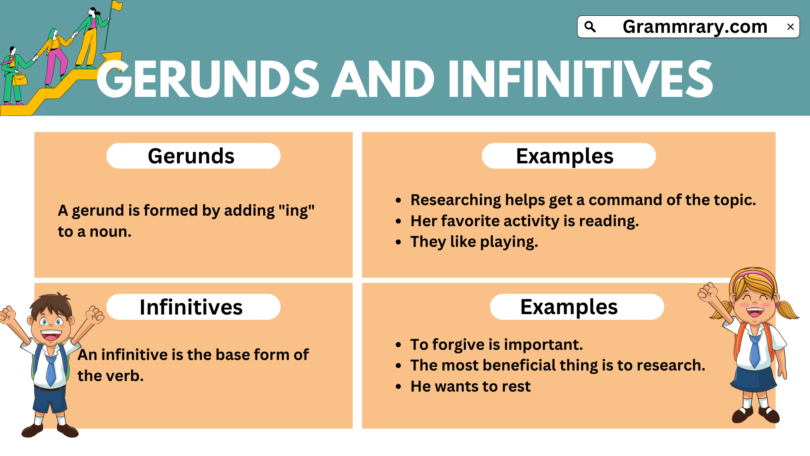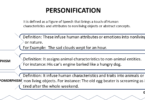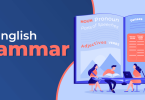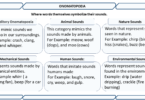Among the types of Verbs, the last one we are going to discuss today is “Gerunds and Infinitives.” Today, we will learn what are gerunds and infinitives; and their usage.
Gerunds and infinitives replace the noun in a sentence.
| Gerund | -ing form of verb (present participle) | Reading, Writing |
| Infinitive | To + base form of verb | To Read, To write |
But the question arises here is, whether to use a gerund or an infinitive. This depends on the main verb.
- I hope to have you here by tomorrow. (Infinitive)
- I predict having the task completed by tomorrow. (Gerund)
What is a gerund?
A gerund is formed by adding “ing” to a noun. Here are the examples.
| Noun | Gerund |
| Read | Reading |
| Learn | Learning |
| Write | Writing |
They can be used as:
- Subject in a sentence
- Object in a sentence
- As the complement
Example Sentences:
| Subject of a sentence | Researching helps get a command of the topic. |
| As the complement of a sentence | Her favorite activity is reading. |
| Object of a sentence | They like playing. |
Using Gerunds in Negative Sentences:
This is done by adding “not” to the sentence.
For Example,
- The best specialty is not avoiding co-curricular activities.
What is an infinitive?
An infinitive is the base form of the verb. The infinitive form of “learn” is “to learn.” You can also use an infinitive as the subject, the complement, or the object of a sentence.
Examples:
| Subject of the sentence | To forgive is important. |
| As the complement of a sentence | The most beneficial thing is to research. |
| Object of a Sentence | He wants to rest |
Using Infinitives in Negative Sentences:
This is done by adding “not” to the sentence.
For Example,
- I decided not to go.
- The most essential factor is not to settle for the rest.
Usage in the English Language:
Use of Gerunds:
- After some verbs
- After prepositions
- As subject or object
Use of infinitives (To + Infinitives)
- After some verbs
- After most of the adjectives
- To represent the purpose
Usage of Bare Infinitives:
These are used after:
- Modal verbs
- Words like ‘let’, ‘make’, and ‘help.’
- Verbs of perception
- Expressions beginning with ‘why’
Gerund and Infinitive list:
A to Z List of 50 Most Commonly used Gerunds:
- Acting
- Biking
- Chatting
- Cleaning
- Climbing
- Cooking
- Crafting
- Dancing
- Designing
- Drinking
- Drawing
- Driving
- Eating
- Exercising
- Filming
- Fishing
- Gardening
- Hiking
- Jogging
- Knitting
- Learning
- Listening
- Meditating
- Modeling
- Painting
- Performing
- Photographing
- Playing
- Practicing
- Reading
- Running
- Sewing
- Shopping
- Singing
- Skating
- Skiing
- Sleeping
- Studying
- Surfing
- Swimming
- Talking
- Teaching
- Traveling
- Typing
- Walking
- Watching
- Working
- Writing
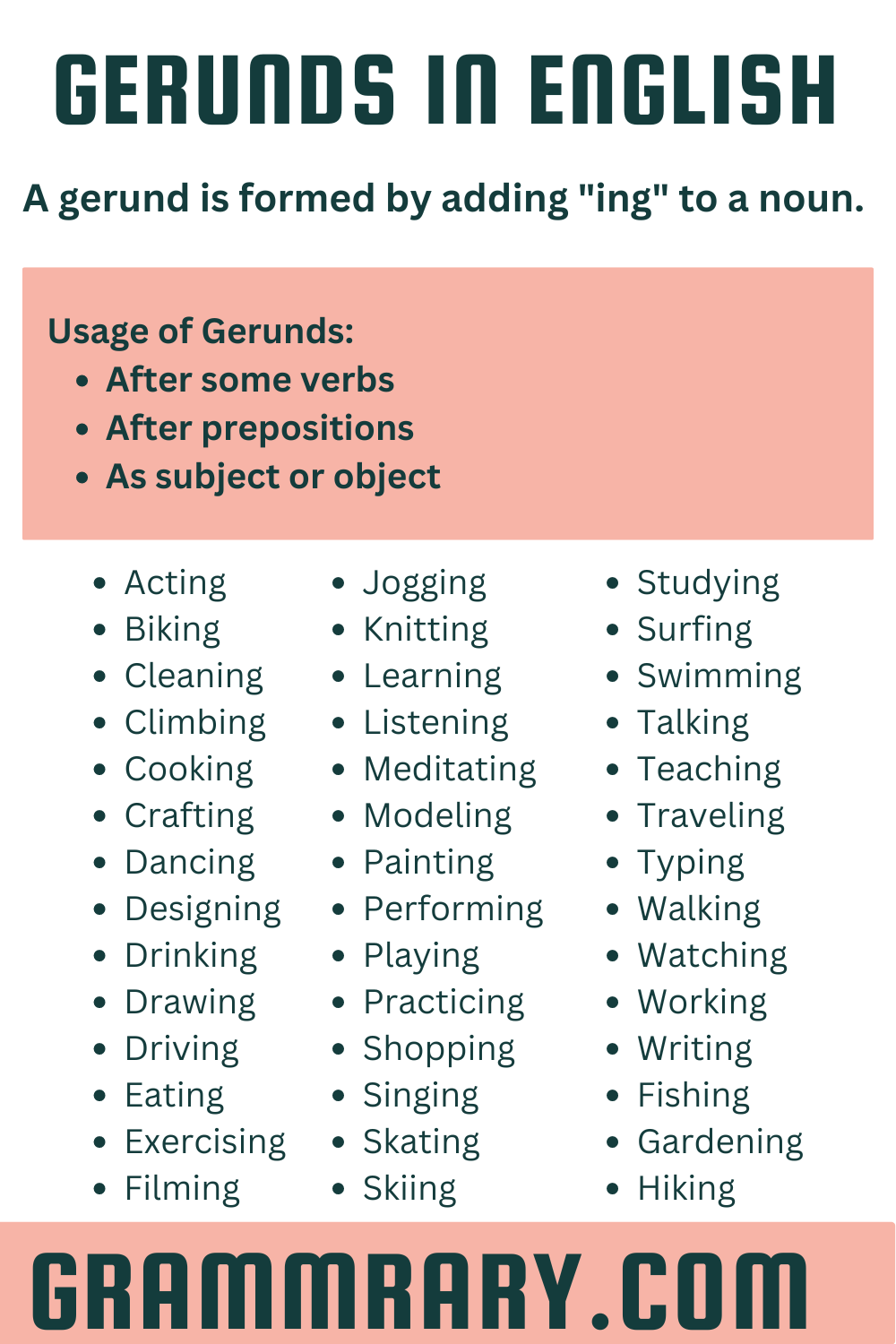
Gerunds, Definition, Usage, and List
Practice the Gerunds’ worksheet now.
A to Z List of 50 Most Commonly Used Infinitives:
- To act
- To bake
- To begin
- To call
- To choose
- To clean
- To climb
- To cook
- To dance
- To draw
- To drink
- To drive
- To eat
- To enjoy
- To exercise
- To finish
- To fish
- To fly
- To follow
- To forget
- To give
- To go
- To help
- To hike
- To hold
- To jump
- To keep
- To know
- To learn
- To leave
- To listen
- To live
- To look
- To make
- To move
- To need
- To play
- To read
- To run
- To say
- To see
- To sing
- To sleep
- To swim
- To talk
- To travel
- To try
- To understand
- To walk
- To write
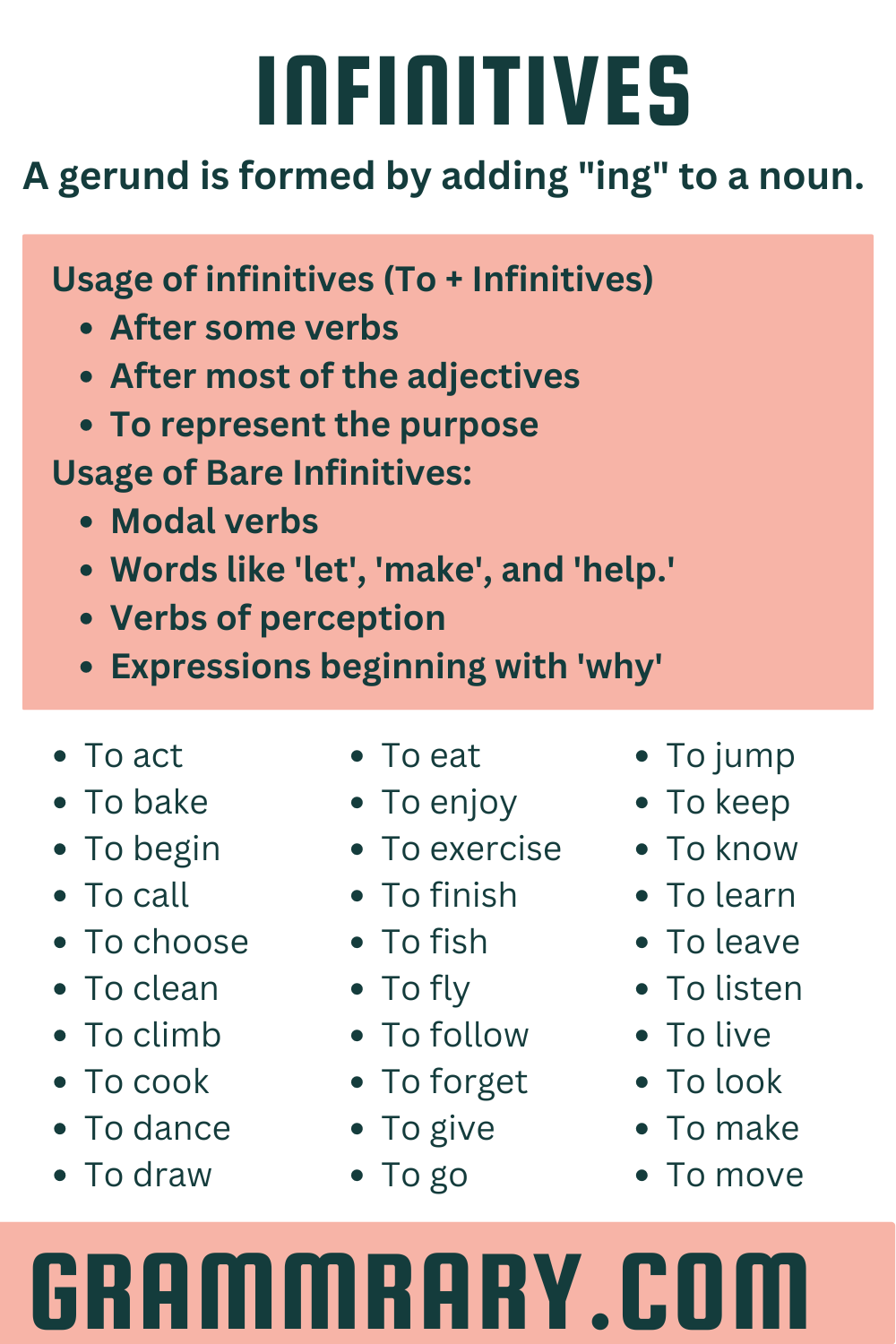
What are Infinitives? Usage, List, and Worksheet
Practice the Gerunds’ worksheet now. Also revise, what we learned yesterday! Helping Verbs.

